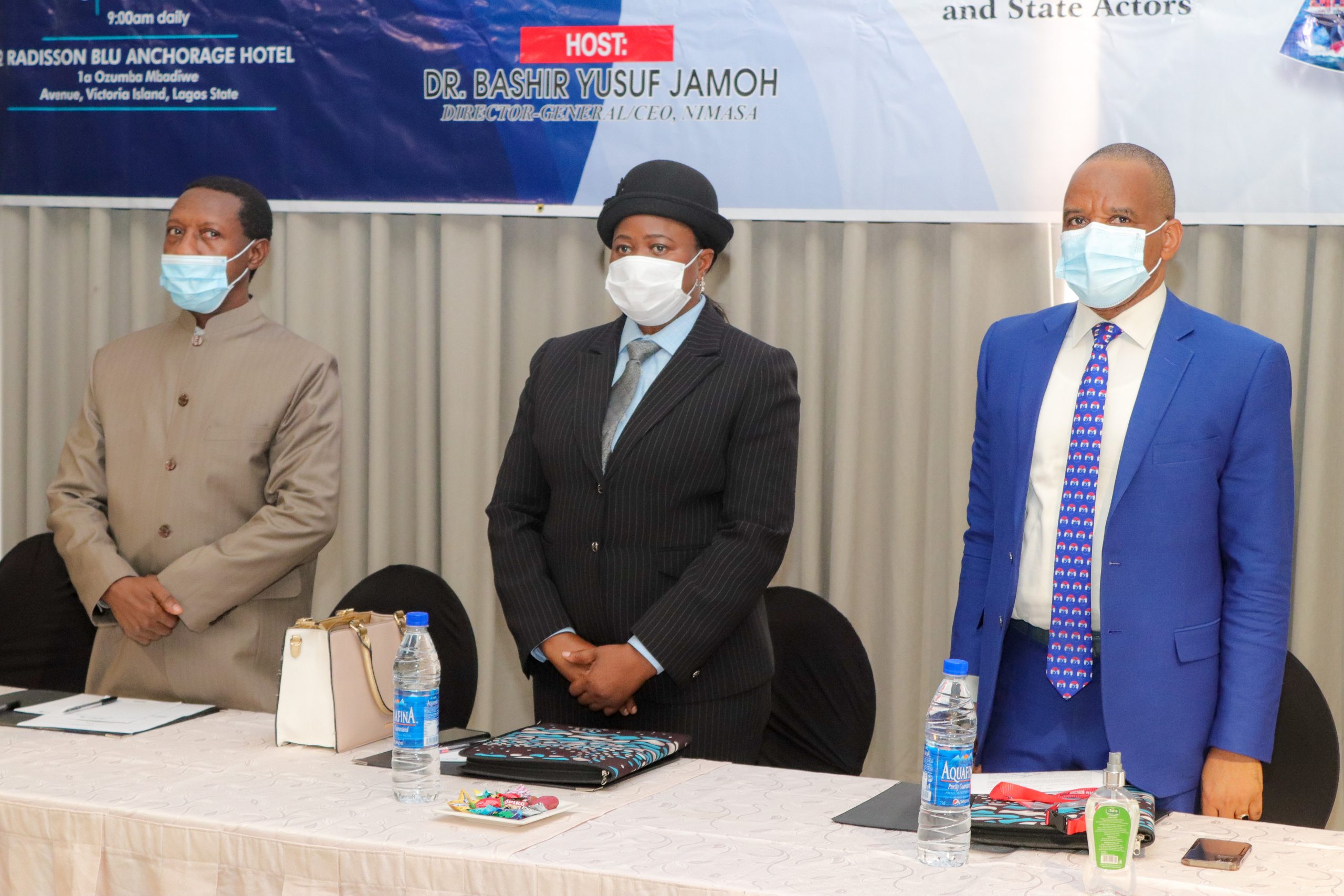
The Suppression of Piracy and Other Maritime Offences (SPOMO) Act, signed into law by President Muhammadu Buhari in June 2019, is producing a better appreciation of Nigeria’s determination to end piracy and sea robbery in Nigeria and the Gulf of Guinea, according to the Director-General, Nigerian Maritime Administration and Safety Agency (NIMASA), Bashir Jamoh.
Speaking at the Nigerian Admiralty Law Colloquium organised in Lagos by NIMASA and the National Judicial Institute (NJI), Jamoh said the admiralty law conference had achieved significant milestones in the continued effort to better maritime law administration in Nigeria.
“The Admiralty Law Conference instituted by NIMASA has achieved important milestones in the pursuit of its target of continuously improving maritime law administration in Nigeria. I am happy to announce that the key recommendations captured in the communiqué of last year’s conference would be sent to the National Assembly for the necessary legislative actions expected to improve the SPOMO Act.
“We have made good progress in the implementation of the SPOMO Act. We have secured convictions at the Federal High Court in Port Harcourt and Lagos, and more judgments are expected next month.
“These prosecutions and convictions have greatly helped to improve Nigeria’s image in the international community by producing a better appreciation of the country’s role and determination to end piracy and other maritime crimes in its territorial waters and the Gulf of Guinea,” he said.
The NIMASA Director-General also spoke on the adjustment in the name of the maritime law sessions, saying it is prompted by the need to bring on board a wider range of stakeholders, including Supreme Court justices.
President of the Court of Appeal, Justice Monica Dongban-Mensem, said NIMASA was “a vital organ in the economic development of Nigeria”.
She said the maritime sector was indispensable, and being global in nature, “informed knowledge of the law in the global environment” was necessary in efforts to advance the sector.
“What touches this sector should be treated with great care,” she said.